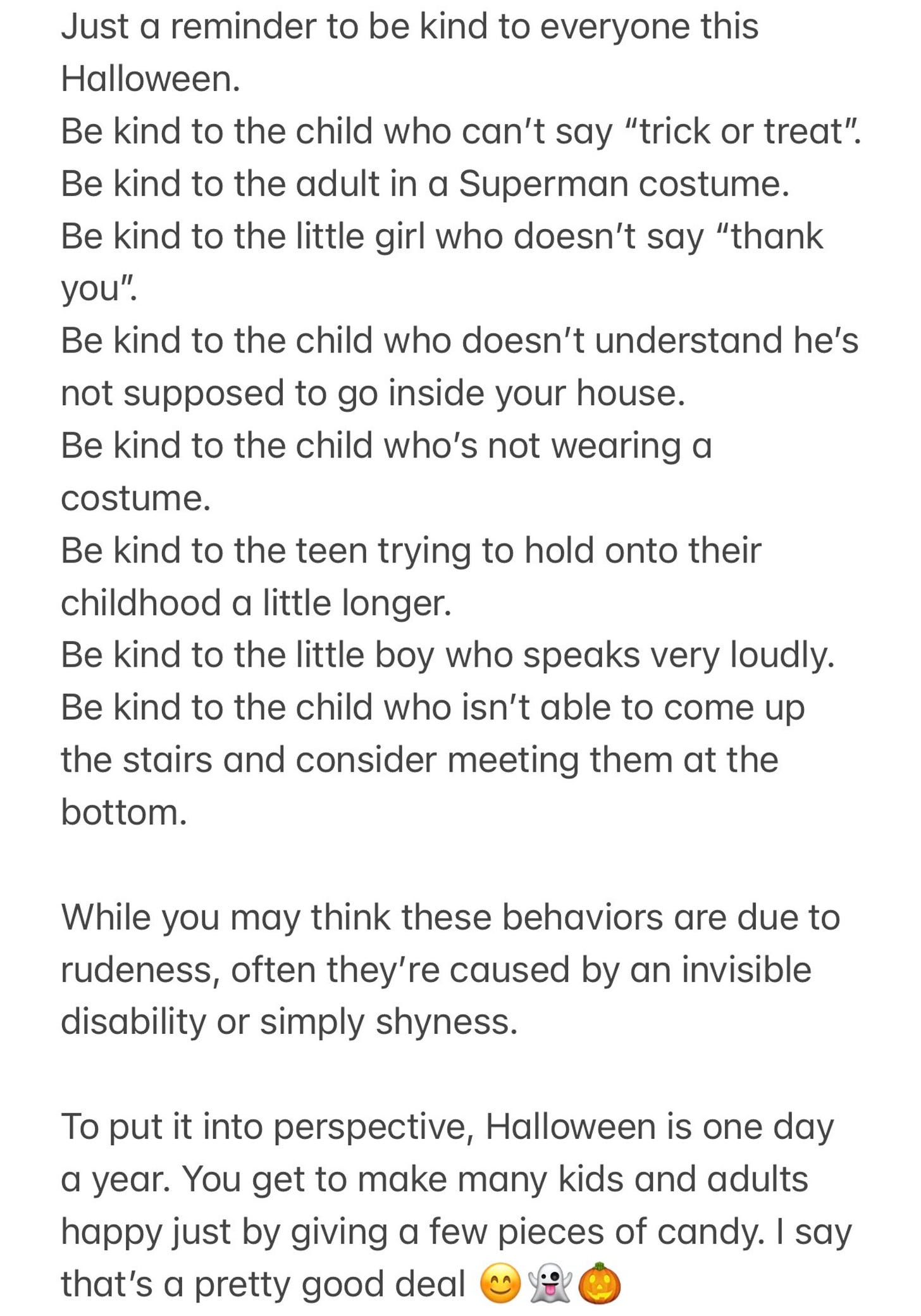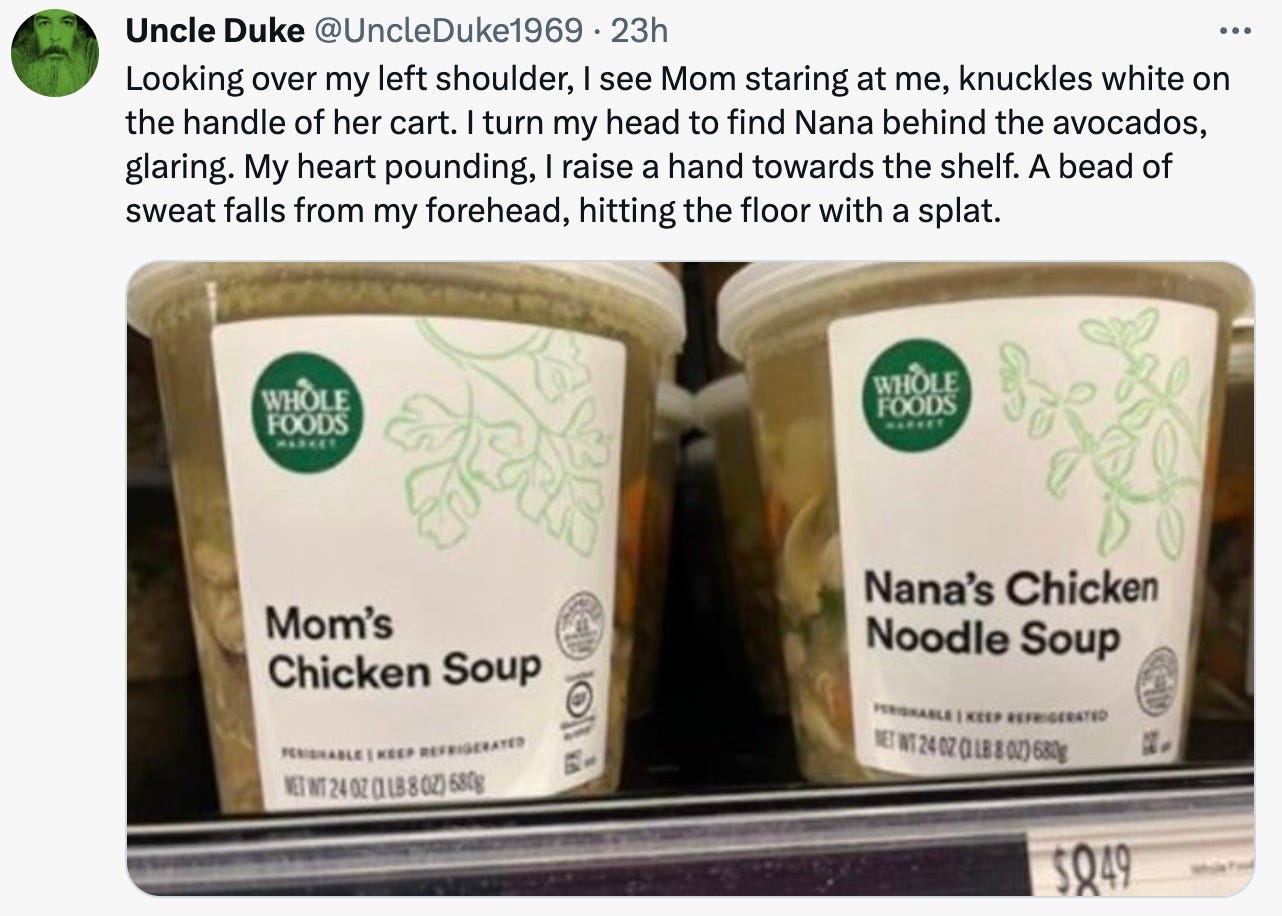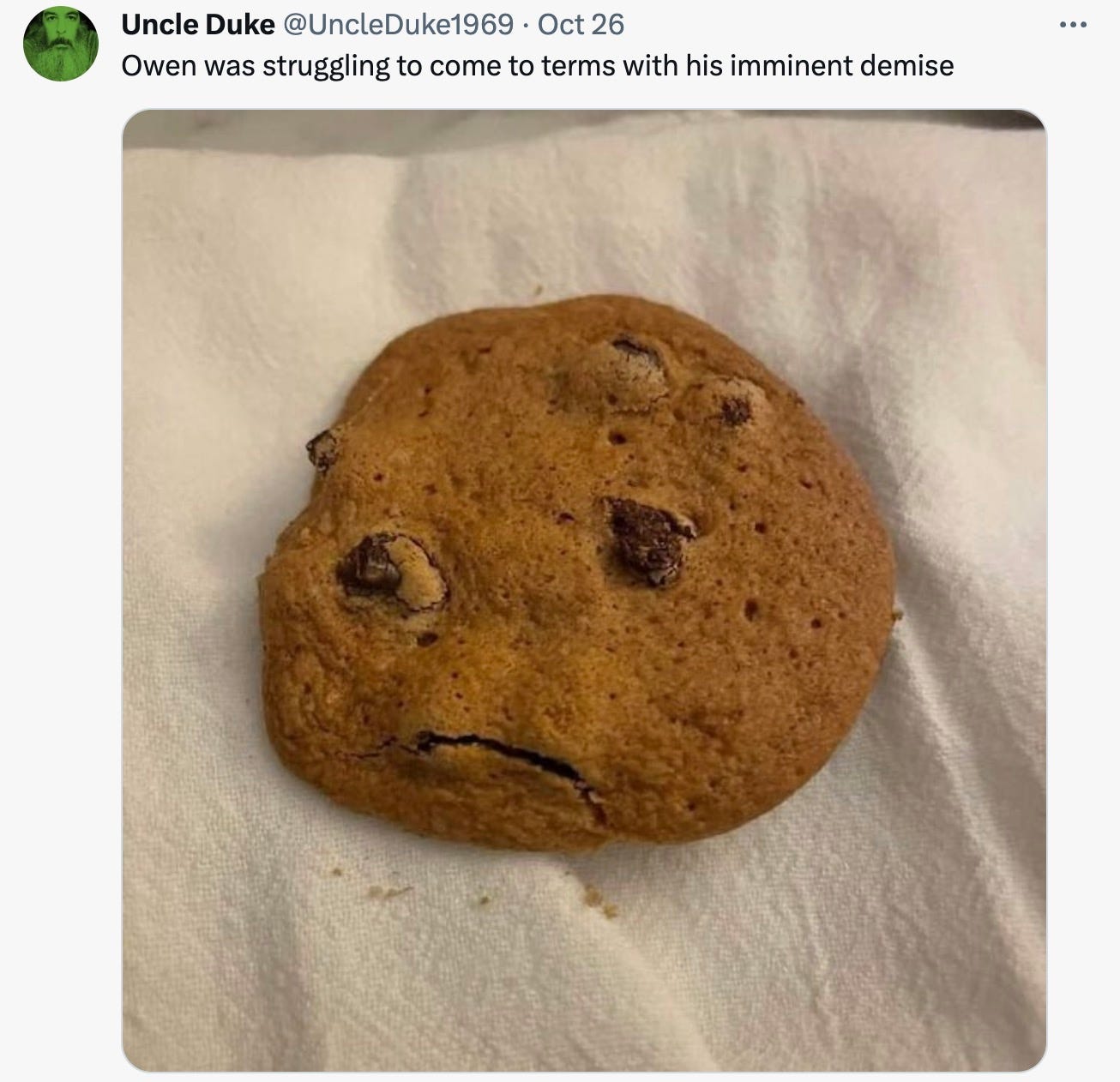To read this issue in your browser, click on the headline above.
Eric Zorn is a former opinion columnist for the Chicago Tribune. Find a longer bio and contact information here. This issue exceeds in size the maximum length for a standard email. To read the entire issue in your browser, click on the headline link above. Paid subscribers receive each Picayune Plus in their email inbox each Tuesday, are part of our civil and productive commenting community and enjoy the sublime satisfaction of supporting this enterprise.
New poll suggests Iowa Republican voters might dump Trump
An NBC/Des Moines Register/Mediacom poll last week of likely Republican participants in the Iowa caucuses found the following levels of support, with numbers in parentheses reflecting the change from a similar poll taken in August:
Donald Trump 43% (+1%) Ron DeSantis 16% (-3%) Nikki Haley 16% (+10%) Tim Scott 7% (-2%) Chris Christie 4% (-1%) Vivek Ramaswamy 4% Doug Burgum 3% (+1%) Asa Hutchinson 1% (+1)
When former Trump Vice President Mike Pence suspended his campaign, his 2% was allocated to the second choice of his supporters.
(I wondered why candidates “suspend” rather than simply end their campaigns, and the answer is that the word “can be a signal to donors to keep their contributions coming while the campaign digs itself out of the red and winds down” according to NBC News.
Slate added, “If a candidate ended his campaign instead of merely suspending it, then he might lose eligibility for federal matching funds that would help pay off his debts. The phrase has been employed at least as far back as the 1970s and continues to serve as the most popular way for candidates to end their primary bids without closing down their campaign committees.”
I could find no good answer to the question, “Why in hell would anyone donate to an utterly dead candidacy?”)
Trump’s lead remains huge, but if all but one of the also-rans dropped out, the primary campaign might well turn into a real race. Haley, who is surging, seems like the most likely choice for the now-fragmented anti-Trump forces to get behind.
Should Democrats want this? Trump motivates Democratic voters and strikes me as the easiest Republican for presumptive Democratic nominee Joe Biden to beat in the general election a little more than a year from now. But Trump is such a malign force, so dangerous and toxic and uniquely potentially destructive, that patriotic Democrats should cheer whatever and whoever dispatches him politically.
Candy corn: Gross or gratifying?
Stefano Esposito told the story of one of the more controversial seasonal candies in the Sun-Times:
Nineteen candy corns amount to about 140 calories and 28 grams of sugar. To be fair, many other Halloween candy staples are in the same ballpark.
Ingredient-wise, it couldn’t be more straightforward. Candy corn is basically sugar, corn syrup, confectioner’s glaze, salt, gelatin, honey and dyes, among some other things.
“It’s not any sweeter than a lot of other candy, and I’ve tasted every candy there is,” said Richard Hartel, who teaches candy science at the University of Wisconsin-Madison.
Once a year, in moderate doses, I like it, bless my heart.
However Esposito cited “a totally unscientific Chicago Sun-Times survey of a handful of Chicago-area bakers” and concluded “If you adore the waxy, violently sugary fall treat known as candy corn, it’s possible you may have been brainwashed as a child.”
We here at Picayune central are big into unscientific surveys, so you tell us:
School cafeteria memories…
Do many kids still play “flick football”? With the index-finger crossbar and the thumb uprights?
I spent many hours in junior high sliding the paper triangle back and forth across lunch tables. I assume that mobile technology has rendered it obsolete, but maybe not.
Yeah, this is sappy, but I’ve come to agree with it
At one point in my career I attempted to fashion myself as the Ebenezer Scrooge of Halloween (See “Boo, humbug!”) but I’ve since mellowed and now want to share this from social media:
Notes and comments from readers —lightly edited —- along with my responses
C.P. — Thank you for calling for some urgency on the migrant issue. From Mayor Brandon Johnson's firing of city health commissioner Dr. Alison Arwardy with no idea of a replacement, to his vague budget and his flip flop on the police contract, his lack of executive and financial experience is glaring. But his inability to execute plans to safely house the migrants is going to result in an even bigger humanitarian crisis than we have now. Seeing these small children and their mothers sleeping outside the police stations is heartbreaking and we may be a month away from snow on the ground! That said, why isn't the press calling out Cook County Board President Toni Preckwinkle to step up and help find locations to house the migrants throughout the county?
Yes, it is a national problem and the Biden administration should be doing so much more than it is, but the county and state should be offering more leadership and assistance too. Democrats, on a national, state and local level have seemingly welcomed these people and declared that they be treated humanely but their lack of execution and planning is resulting in the opposite of humane treatment.
Zorn — Freezing temps Monday into Tuesday brought that home. I doubt we’re going to see much help from the feds or the state, and local politicians are being buffeted by objections from their constituents.
Wendy C. — The decision to erect tent camps for migrants to get them through a brutal winter is a bad idea on its own, let alone where these camps may be located. This is not a compassionate solution. Pritzker suggested several weeks ago that the asylum-seekers be housed in unused buildings. Could that work? Why or why not? I don't understand why the mayor's office is not searching for alternative solutions.
Zorn — I frankly don’t know exactly what they’re doing. Johnson is not a great communicator. Being collaborative, I assume.
Bob E. — Regarding your continuing opposition to the Invest in Kids program — “JB Squishker — The governor ‘has taken almost every possible position imaginable on the Invest in Kids Act — I take it you can live with minority children from low-income families trapped in miserably underperforming public schools, while higher income families have school choice for their children.
Wouldn't it be nice to provide all of those minority children from low-income families with good, safe schools in their own neighborhoods? How are you proposing to accomplish that? The “more money” answer is just not credible. Increased spending on public education in major cities, even adjusted for inflation, has not and is not producing better results. Tell us about your reform proposals to significantly improve inner city public education and academic achievement.
And show us the proof that any significant number of student beneficiaries of the Invest in Kids program are being indoctrinated in some significant way.
Zorn — What is it, do you suppose, that causes a school to be “miserably underperforming”? It’s not that it’s public. Many public schools have highly performing students taught by unionized teachers. So what could it be, hmm?
What makes a school good and safe? Answer me that and you might have your answer to what sort of proposals would boost academic achievement for all.
Conservatives bang on about choice for the poor when it comes to a program that, if scaled, would seriously harm public education. Yet their concern doesn’t extend to expanding choice for low-income families when it comes to, say, health care or food. This is why I suspect all this enthusiasm for “choice” is a backdoor attack on public education which is meant as a way to promote tax funding for religious schools.
I’m opposed to that. I favor smaller class sizes, more individual instruction, better comprehensive community services.
If those who favor funding private schooling for low income kids and can’t live with the idea them having to attend their neighborhood schools, the good news is they can do so right now! Or is their concern limited by the generous tax credit?
Michael G. — Religious indoctrination on public money is wrong and unconstitutional. Progressives are against this small program on principle not because it may do some good (if you think being sent to a religious school is good) to a small minority but because it is the first step toward state funding of faith-based schools.
C. P. — The right preaches school choice constantly and when the left makes such a big fuss over this one rather small program it just feeds into the narrative that they don't really care about poor Black children. Pritzker understands this and that is why he backed away from his support.
Peter Z. -- You can have your high flying principle of no public money for private schools. But it does not provide a solution to a parent with kids in a dangerous public school. They need to protect their kids now and have an obligation to always look out for the child’s safety. If a public school cannot offer a safe environment to their students, then the safety of a student trumps the no public money for private schools. Why do all the folks so concerned about not using public money for private schools either have no kids or kids that went to safe public schools?
Zorn — And why are those so ostensibly concerned with helping poor kids demand a significant tax credit for doing so? Unless you plan to privatize all schools and allow them to reject students who have learning and behavioral problems, then your idea of safer schools — a great idea in theory — lacks rigor.
K. M. — Have you read the statistics on these programs so far? In nearly every case the vast majority of students who get these scholarships have never gone to a public school. And private schools are not required to accept any child that they think will make them look bad or require additional resources. So few to none non-native English speakers, few to none intellectually disabled children, few to none physically disabled children, etc.
I do not want $7500 of public tax money going to schools that can discriminate without any penalties.
You can look around your neighborhood and if you see a child who you feel will succeed at a private school, go ahead and pay their tuition. But not with my money.
Jo A. — Regarding your “Songs of Good Cheer” essay contest asking readers to write about their most memorable holiday gift, I’m confronted with just how out of step I am with others.While calling it a “holiday gift” is obviously meant to be inclusive I have to say neither I nor any of the Jews I know ever received any sort of “holiday” gift special enough to possibly write an essay about it.
Gifts are just not part of the culture I grew up in. Hanukkah is a minor holiday and the only gifts we got were some Kennedy half dollars. I did know some who got more tangible gifts but it still was nothing like the “magic of the holidays” thing I saw from those who celebrated Christmas. I want to emphasize that I’m not being critical of the contest at all, it was just one of those wake-up call moments when I’m reminded that I really am part of a teeny minority in this country, even though my suburban and workplace bubbles cause me to forget that on a daily basis.
Zorn — I have certainly heard this before and it’s something we thought of when reviving this contest. Gift giving wasn’t part of the historical tradition of Hanukkah. But neither was it for Christmas. From Time magazine:
Hanukkah is now one of the two most widely observed holidays for Jewish Americans, Rabbi Menachem Creditor, scholar in residence at the UJA-Federation of New York says. nd it’s perhaps no surprise that this big rise in its popularity came soon after gift-giving made its way into the picture as part of the quintessential Christmas experience. In the late 1800s, Creditor explains, gift-giving became a “commercialized way of expressing Christmas, and Christmas became a national holiday.”
So, by the early 20th century, American Jews had become accustomed to seeing Christmas gifts abound. Parents didn’t want their children to feel left out as their peers received presents every December. Evidence of the shift can be seen in Yiddish-language U.S. newspapers from the 1920s, Creditor says, which would advertise the giving of gifts in honor of Hanukkah.
The holidays aren’t similar in cultural scope and yet we do want to be inclusive. I’d be interested in other, similar reflections from those whose traditions don’t include elaborate gift exchanges.
Additionally, though, a gift does not have to be elaborate — big or extravagant — to be memorable. In fact, memorable can be memorably bad or cheap or cheesy.
Skeptic — Regarding “cancel culture,” I think people use that term only when they disagree with the cancelling. If you refuse to watch movies where Harvey Weinstein is an executive producer because the thought of it is so troubling to you, is that cancelling? What if you boycotted Chick-fil-A to register your dissatisfaction with some of the political groups they supported? Which, by the way, caused Chick-fil-A to change its practices. (“Chick-Fil-A Is Facing A Boycott With Customers Claiming They’ve Gone ‘Woke’”)
Zorn — A boycott is not cancellation. It is a form of protest usually designed to get a company to change its practices, not an effort to get someone fired or ostracized or muzzled. I think of cancellation as an effort to deny someone a job or a platform based on their views (not their crimes). It is an effort to silence reasonable opposing views.
Now what is “reasonable” is certainly debatable, but we’re seeing people with views that are not necessarily extreme or ever unpopular run out of campuses or fired or met with efforts to silence them.
Paul S.— When I try to answer one of your embedded polls — visual tweet of the week and so on — I always get this response: "We were unable to record your vote. Please refresh the page and try again."
Zorn — My understanding is that if you're not logged in to Substack it doesn't recognize you as a subscriber and the polling app embedded in Substack only allows subscribers -- paid and unpaid! -- to vote. That may be your issue, and I wish it weren't the case.
But anyone who has these sorts of issues should write to me and I’ll escalate them with Substack.
David L. — Our southern border is indeed pretty much wide open, and that does indeed represent a very real threat to our national security. Public opinion polls show that concern over the open southern border tops the list with many voters for 2024, and that issue skews very heavily in favor of Republicans who are seen as better able to control the border.
Circling back to where this discussion originated, you had wondered why in the world such a large percentage of the American public were still willing to support Trump despite his well-known personal shortcomings and current legal troubles. I suggest that the southern border and national security issue could well be Exhibit 1 on why so many people would feel compelled to vote for Trump instead of Biden in 2024.
Zorn — I can’t deny that perception, though, really, how many people are negatively impacted by undocumented immigrants pressing at and through our borders? Some, sure, but this strikes me as a lot of carrying on about people who are likely to become productive, taxpaying residents/citizens, an appeal to nationalist impulses and fear.
Steven K. — One does not have to be indifferent to the border crisis and its ramifications, or live in a bubble in which progressive-radical messaging is the accentuated doctrine in order to realize that Trump is a malefic force, a tricked up carnival barker and festering fraud, and a Democracy demolishing would be (and might still be) strongman and ignoramus who is unfit to run a gas station, let alone handle leading the free world. If you can’t see this after all this time and all the evidence, then there’s nothing anyone can say to you that would open your eyes.
But please spare us the canard that it’s just Trump’s policies that appeal. There’s no policy that he supports that is so urgent that it justifies setting fire to our system of Democracy and reducing our national heritage to a pile of ashes, which is the inevitable outcome of a Trump regime.
Mark G -- I strongly agree with you about banishing “beloved” (and other adjectives suggesting virtue) used by reporters in news stories. Almost everyone is beloved by some, and virtually no one by all who will appreciate being informed about whatever news is being reported. It adds nothing to the quality or value of the report.
Zorn — And of course one test would be if a deceased person were not liked, would the reporter gratuitously add “despised” to the description? I would allow “controversial” in describing a public figure who demonstrably generated controversy.
Ya gotta see these tweets!
Here are some funny visual images I've come across recently on social media. Enjoy, then evaluate:
Vote for your favorite. I’ll share the winner in Thursday’s main edition.
Usage note: To me, “tweet” has become a generic term for a short post on social media.
There’s still time to vote in the conventional Tweet of the Week poll!
Thank you for supporting the Picayune Sentinel. To help this publication grow, please consider spreading the word to friends, family, associates, neighbors and agreeable strangers.
.


















I have said this time and time again. Yes, I admit to not liking Trump's policies. He is overboard in support of business with no restrictions and did what he could to dismantle most consumer and environmental protections. His poohpooing of foreign relations is both unrealistic and short sighted. But it goes further. He is simply a sorry human being, a poor example of a leader. Even if I agreed with his policies, maybe one of his supporters can explain to me why conservatives can't find somebody with the same ideas that is not totally morally detestable.
I like to think candy corn is not so bad for you.Corn is a vegetable after all.